| Section | Name, Affiliation, Paper Title and Short Biography |
|---|---|
| 2-1: Nanocarbons & 2D Materials | Ryo Kitaura, Nagoya Univ., Japan Paper Title: 2D-semiconductor-based heterostructures 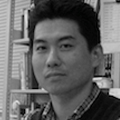 RK obtained his Ph.D. in 2003 and joined Toyota Central R&D laboratory. After two years of work at Toyota Central R&D lab., he joined Nagoya University as an assistant professor in 2005 and was promoted to associate professor in 2008. In 2022, he joined NIMS (MANA) as a group leader. His research interest has focused on low-dimensional nanostructures since he started working on these at NU. His current research interests include the realization of 2D-materials-based heterostructures and exploring their physical properties. |
| 2-2: Nanodevices | Motoshiko Ezawa, Univ. of Tokyo, Japan Paper Title: NEMS-based universal quantum computer 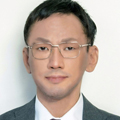 2007 Assistant Professor, Department of Applied Physics, University of Tokyo 2015 Lecturer, Department of Applied Physics, University of Tokyo 学歴は以下です。 2005 Bachelor, Department of Physics, University of Tokyo 2007 Master, Department of Physics, University of Tokyo 2010 PhD, Department of Physics, University of Tokyo |
| 2-3: Nanofabrication | Takuya Iwasaki, NIMS, Japan Paper Title: Quantum transport phenomena in hBN/graphene moiré superlattices 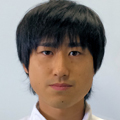 Takuya Iwasaki is an Independent Scientist at the International Center for Materials Nanoarchitectonics (MANA) in the National Institute for Materials Science (NIMS). He received his Ph.D. in Materials Science from the Japan Advanced Institute of Science and Technology (JAIST). He worked as the JSPS research fellow from 2017 to 2018 at JAIST. He joined the NIMS as the International Center for Young Scientists (ICYS) Research Fellow from 2018 to 2020 and became the present post in 2020. His current research interest is quantum transport properties in nanostructure devices based on two-dimensional materials and their heterostructures. |
| 2-3: Nanofabrication | Soh Ryuzaki, Hokkaido Univ., Japan Paper Title: Fabrication of nanopore devices for Exosomes 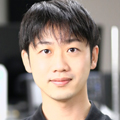 Sou Ryuzaki graduated with his Ph.D from Department of Nuclear Engineering at Tokyo Institute of Technology in March 2010. After receiving his PhD, he worked for Nano-Science Center of University of Copenhagen as a postdoctoral research fellow. He is currently an Associate Professor of Analytical Chemistry Lab. at Hokkaido University. He is engaged in research related to Analytical Chemistry, Materials Physics, Quantum Chemistry, Plasmonics, Organic Devices, and Nanobiotechnology, and particularly works on plasmonic nanopore devices. |
| 2-4: Inorganic Nanomaterials | Hidekazu Tanaka, Osaka Univ., Japan Paper Title: Nano/micro-scale phase change electronics using functional oxides/2D material heterostructures 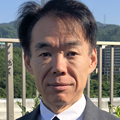 Tanaka graduated Osaka University in 1993. He was a research associate from 1997 to 2003, an associate professor from 2003 to 2008 at the Institute of Scientific and Industrial Research, Osaka University. He is currently professor, and the director of Nano-science and Nano-technology center at SANKEN. His research interests include Nanotechnology (thin Film and heterostructure growth, design and construction of 3D nanostructures) with Functional materials (transition metal oxides, ferromagnetic, ferroelectric, strongly correlated electron system, 2 dimensional atomic layered materials). He is now the chairperson of JSPS Professional groups of "Functional oxide electronics’’ |
| 2-4: Inorganic Nanomaterials | Hiroshi Naganuma, Tohoku Univ., Japan Paper Title: A perpendicular magnetic anisotropy in crystallographically heterogeneous graphene/L10-FePd interface 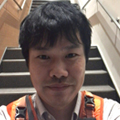 Naganuma graduated Osaka University in 2004. He was a post doctor from 2004 to 2006 in Osaka University, and an assistant professor from 2006 to 2016, an associate professor from 2017 in Tohoku University. His research interests include nano science (Epitaxial growth, design of multilayer, and 2D nanostructures) with physical properteis (ferromagnetic, ferroelectric, strongly correlated 2D electron system). He is also engaged in MRAM devices with spintronics technology. He is now the chairperson of JSPS Professional groups of "Ferroic-ordering and their manipulation’’. |
| 2-6: NanoTool | Ryuzo Kawamura, Saitama Univ., Japan Paper Title: Integrative work of nanometric motor proteins toward macroscopic power tool 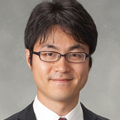 Ryuzo Kawamura was born in Nara, Japan. He received his PhD in polymer science from Hokkaido University (supervisor: Prof. J.P. Gong) in 2008. He did postdoctoral research in RIKEN and in AIST. Currently, he is an Assistant Professor in Department of Chemistry, Saitama University. In 2005 he got engaged to the studies on motor proteins and cytoskeletal proteins with both viewpoints of material science. In recent studies, he is attempting to apply the unique cooperative movements of the motor proteins to biomedical applications such as cancer diagnosis. |
| 3: Nanoimprint, Hybrid-NIL, Biomimetics, and Functional Surf | Hirotoshi Torii, Canon Inc., Japan Paper Title: Semiconductor Production Equipment NGL Development Division for Canon Inc. 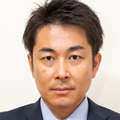 Mr. Hirotoshi Torii is a mechanical engineer of Semiconductor Production Equipment NGL Development Division for Canon Inc. Mr.Torii has been involved in development of high precision equipments in the lithography tools such as NIL and EUV for over a decade, and a named inventor on over 20 international patents. |
| 4: BioMEMS, Lab on a Chip, and Nanobiotechnology | Hiroaki Suzuki, Chuo Univ., Japan Paper Title: Microfluidic technologies for artificial cell studies 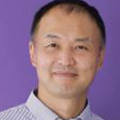 Hiroaki Suzuki is currently a professor in the deprtment of precision mechanics, faculty of science and engineering in Chuo University, Japan. He received M.S. and Ph.D. degrees in Mechanical Engineering from the University of Tokyo, Japan. From 2003 to 2007, he served as an Assistant Professor in the Institute of Industrial Science (IIS), the University of Tokyo, and from 2007 to 2013 as an Associate Professor in the Graduate School of Information Science and Technology (IST), Osaka University. He became an Associate Professor in the Department of Precision Mechanics, Chuo University, Japan in 2013, and promoted to Professor in 2016. His research interests are micro self-assembly, microfluidics, biochips, and artificial cells. |
MNC 2022, 35th International Microprocesses and Nanotechnology Conference, November 8-11, 2022
